Football, financial fair play and the future of FIFA
Professor Wyn Grant, Politics and International Studies and Dr Christian Stadler, Warwick Business School
Is it all doom and gloom in football? Following the recent scandals surrounding Qatar, the legal cases around financial fair play and the alleged bribery of FIFA officials it would be tempting to think so. Wyn Grant, Professor of Politics and International Studies at the University of Warwick and Dr Christian Stadler from Warwick Business School have been looking at the business behind the beautiful game, examining the problems and possible solutions which could change football and its governance in the future.
Words by Gareth B Jenkins.
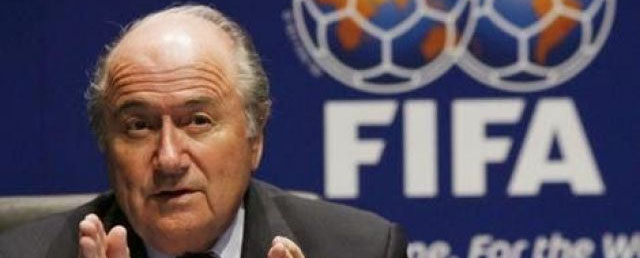
Something is rotten in the state of football. When Greg Dyke, Chairman of the English Football Association, can publically compare Sepp Blatter, the head of FIFA, to Kim Jong-Un, it’s clear that things have turned ugly in the beautiful game.
Dyke made the comparison when speaking to the UK Parliament’s Culture, Media and Sport Committee on 22 July 2014. The Committee was interested in the bidding process for the 2022 World Cup, which will take place in Qatar. The controversy around Qatar’s hosting of the tournament is well documented, but should allegations that money had exchanged hands to secure the World Cup have been much of a surprise? With players being sold for £80m+, some clubs bringing in £600million a year in revenues and Forbes publishing an annual list of the most valuable teams, what happens on the pitch, whilst significant, is now only a fraction of what football has become. The beautiful game would be much better described as the beautiful (or otherwise) business.
Wyn Grant is a Professor of Politics and International Studies at the University of Warwick. He is the co-editor of The Transformation of European Football: Towards the Europeanisation of the National Game along with Arne Niemann and Borja Garcia, runs the website footballeconomy.com and podcasts about football. As a supporter of Leamington, he’s not seeing those £80m players and £600m revenue streams at his local club, but as an economist, he is looking at them.
“Money and modern football are inseparably linked, says Wyn. “The arrival of satellite broadcasting and pay-per-view television transformed the game. The latest British television deal, contested between Sky and BT, meant that the club at the bottom of the table at the end of the season received more in television money than Manchester United had won as title winners the previous season.”
To fans, football might be about local derbies, regional rivalries and national leagues, but to the business, football is global. For example, the revenue raised from foreign broadcaster income is now two-thirds of that coming from the domestic game. As football became more globalised, it became an attractive theatre for those who wish to project themselves on the world stage.
“Wealthy individuals from Russia, the Middle East, and the United States bought clubs and invested heavily in players,” says Wyn. “That’s if ‘invest’ is the right word for a depreciating asset that often fails to deliver what was promised. With the exception of the Glazers, who engaged in a heavily leveraged buyout of Manchester United and hoped to get their money back through capital appreciation, these investors were not planning to make a profit.
These were trophy investments designed to give them prestige and raise their profile, and perhaps to offer a form of political insurance.”
The sums coming from owners and television were enhanced by streams of income from commercial sponsorship. Although it remains a lucrative source of funds, these figures far exceed traditional shirt sponsorship. Manchester United became the most sophisticated exploiter of the commercial sponsorship market; segmenting the world so that they had different phone sponsors in different markets. In its last quarterly results, corporate sponsorship was their most important revenue stream at £42.6 million, followed by match day revenues of £38.6 million and broadcasting revenues of £35.6 million.
“Wages and transfer fees spiralled upwards as a result of the money flowing into the game,” says Wyn.
In the Premier League, wages accounted for 75 per cent of club revenues (around £1.7bn) last year. This was up from 46 per cent in 1996.
“Agents took their share of the available money as players negotiated contracts that left them free to exploit their naming rights,” added Wyn. “Winning domestic titles remained important, but getting access to the Champions’ League, with its enhanced revenues and prestige increasingly became the most important prize.
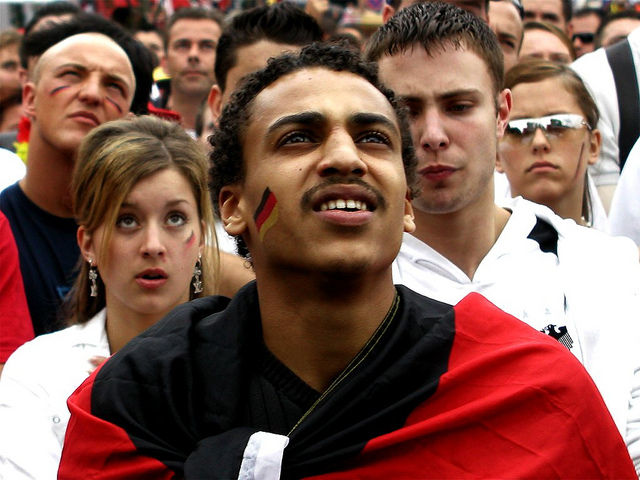 “Getting into the Europa League was a poor consolation prize with revenues barely compensating for additional costs. Moreover, the prolonged and draining nature of that competition undermined a club’s ability to secure domestic success and get back into the Champions League. No wonder there were jokes at the end of last season about a race for seventh place to avoid Europa League qualification!”
“Getting into the Europa League was a poor consolation prize with revenues barely compensating for additional costs. Moreover, the prolonged and draining nature of that competition undermined a club’s ability to secure domestic success and get back into the Champions League. No wonder there were jokes at the end of last season about a race for seventh place to avoid Europa League qualification!”
Fans of course have many concerns about the direction the game has taken; the yellow and green being flown at Old Trafford in protest of the Glazer’s ownership is perhaps the starkest symbol of unrest within the ranks of supporters in recent seasons but it is an example rather than a stark anomaly.
Displeasure is not just felt towards the owners. There is resentment towards players earning high wages but failing to deliver on the pitch and managers are facing criticism from the fans, players and the owners.
“For dismissed managers, the average tenure in the Premier League is now just 1.22 years,” says Wyn. “And the available literature suggests that in most cases it’s doubtful whether a change in the manager secures anything more than a short term, but not sustainable, improvement in performance.”
Clubs in the lower leagues have not benefited from the money flowing into the Premier League.
“Indeed, the competition in the Championship has been distorted by foreign owners keen to use these clubs as a route into the top flight with a lower initial outlay,” says Wyn. “And relegated clubs are bringing increasingly large wallets down with them, topped up by generous parachute payments that extend over four years.”
Premier League Clubs have recently requested for these parachute payments be paid over two years instead, increasing the initial boost to £30m in the first year of relegation and enhancing the opportunity for the relegated clubs to bounce back immediately and re-enter the top flight.
“Lower league clubs no longer benefit from a trickledown effect because it is unusual for a top club to sign a player from a lower division,” explains Wyn. “Foreign players are seen as offering better value. If a lower league clubs goes to the effort of running an academy it is very likely to see its best players snapped up by bigger clubs; compensation is payed but it is related to the costs of development rather than the potential value of the player.”
In an effort to mitigate the power of the nouveau riche football clubs, UEFA introduced the financial fair play regulations. Agreed in principle in 2009, the regulations came into effect in the English leagues during the 2013/14 season and affect all clubs wishing to participate in the Champions or Europa Leagues.
“Financial fair play regulations were devised by UEFA, and replicated at a domestic level, to try and create a more level playing field for football,” explains Wyn.
“Cynics thought they were a means for established clubs like Real Madrid and Bayern Munich to pull up the ladder behind them and ensure that no new challengers, like Manchester City or Paris St Germain, emerged.”
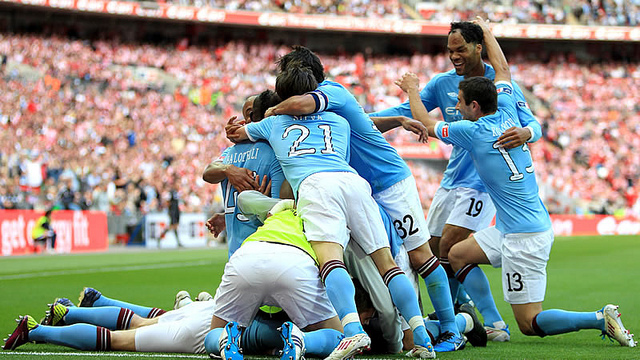 Manchester City was recently penalised, along with eight other clubs across Europe, under the regulations, which are now being legally scrutinized.
Manchester City was recently penalised, along with eight other clubs across Europe, under the regulations, which are now being legally scrutinized.
“The domestic regulations are likely to be challenged in the courts if any club is given a severe sanction,” says Wyn. “Indeed, a number of Championship clubs have already engaged a solicitor to write to the football league and warn them of the possibility of legal action. It is also possible individual players will bring legal claims and this may be the route by which the issue enters the courts as it did with the Bosman judgement in 1995.”
Union Royale Belge des Sociétés de Football Association ASBL v Jean-Marc Bosman changed the transfer system in football by giving the footballers the same freedom of movement within the EU labour market as ‘ordinary citizens’. If the financial fair play regulations came before the courts, Wyn believes we could see similar changes to the market football operates within.
“A disclaimer is necessary at this point,” says Wyn. “I’m not a lawyer and, in particular, I’m not one of the growing number of sports lawyers, but I have consulted some. There are some differences between domestic and European law in the relevant areas but I’m not sure that would matter much at the end of the day as European law ultimately has primacy over that of a member state in matters which are covered by the European treaties.”
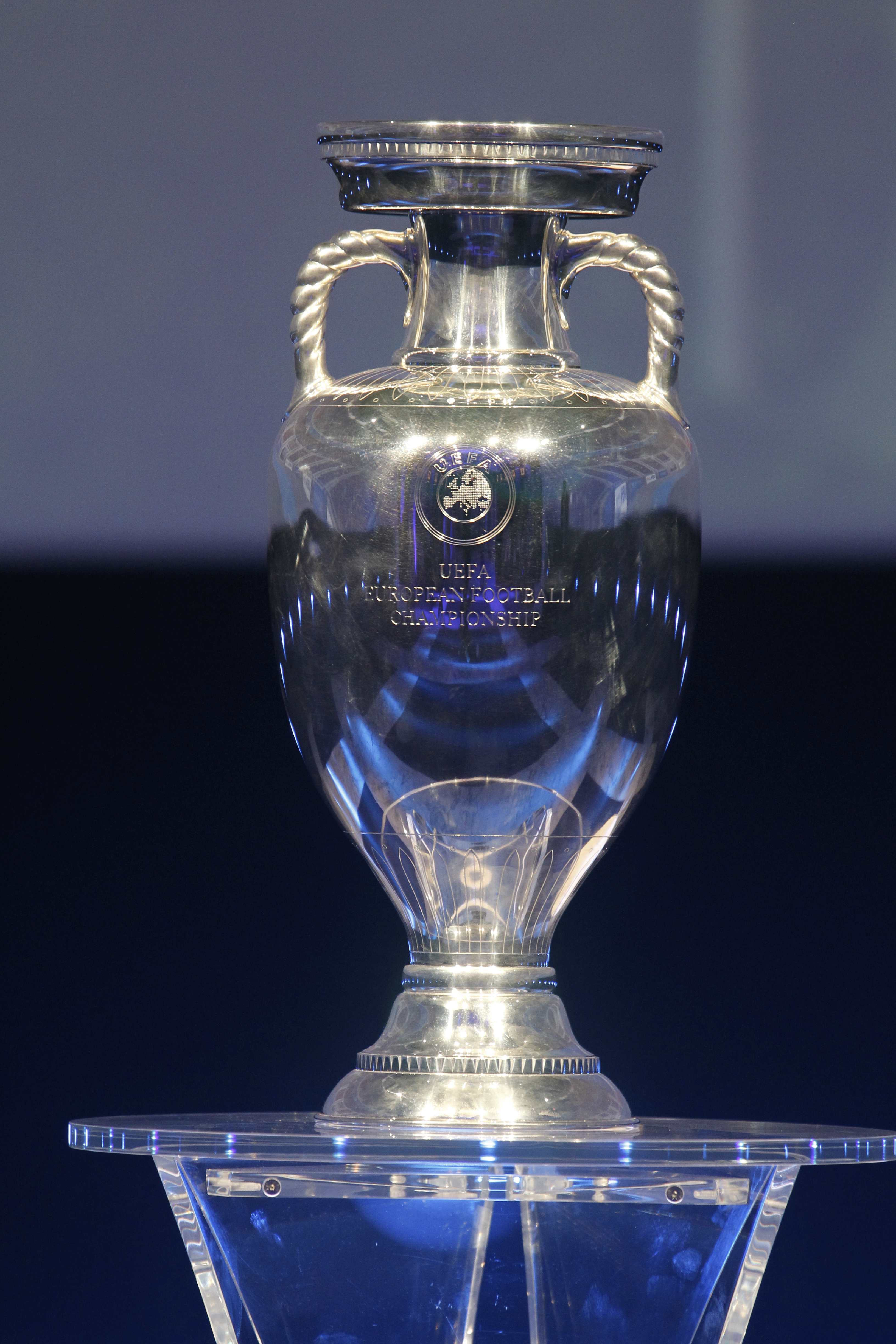 The European Commission has given UEFA’s financial fair play rules a clean bill of health and a joint statement was released by Joaquín Almunia, Vice-President of the European Commission, and Michel Platini, president of the Union of European Football Associations (UEFA), in 2012 outlining the role of the regulations.
The European Commission has given UEFA’s financial fair play rules a clean bill of health and a joint statement was released by Joaquín Almunia, Vice-President of the European Commission, and Michel Platini, president of the Union of European Football Associations (UEFA), in 2012 outlining the role of the regulations.
“This might seem to be a surprising decision given that many sports lawyers have argued that they are in conflict with competition law,” says Wyn. “However, the Commission was extensively consulted about the rules when they were being drawn up.”
However, a joint statement is far from the end of the matter and the legal battles have already begun. In the UK, Manchester City may have settled out of court but in Belgium, Jean-Louis Dupont is currently arguing that part of the financial fair play regulations, specifically the ‘break even’ rule, is not in line with EU law. If you’re not sure who Dupont is, it’s understandable. He’s not a manager and he doesn’t own a club. He was however, part of Bosman’s legal team in 1995.
“The regulations are concerned with the long-term stability of club football but it is doubtful whether this can be considered a legitimate objective under EU law,” says Wyn. “Not because it has no value but because it does not justify restrictions on competition. It is not enough to show that European football is suffering from financial difficulties and that the fair play rules are designed to solve this problem.
“It has to be shown that there is no alternative, that there is not a less restrictive means of achieving the same objective, such as a ‘luxury’ tax on top clubs, which would, of course, be deeply unpopular with those same clubs which is why it hasn’t been adopted.”
Dupont is a not alone in challenging the ‘break-even’ rule. Professor Dr Henning Vöpel, of the Hamburg Institute of International Economics (HWWI), concluded the rule was in breach of four articles of the treaties of the European Union as well as articles 15 and 16 of the Charter of Fundamental Rights.
“Article 101 of the treaty is probably the most important revision, as it would also affect domestic schemes such as that developed by the English football league,” explains Wyn. “Article 101 prohibits agreements which restrict or seek to restrict competition and the regulations do that by collusive action that erects barriers to entry. There may be other ways of achieving the objective of restraining spending that are lawful but they will take time to devise.”
The European Commission’s approval of the financial fair play regulations should not be surprising; for some time there has been an interest in the ‘Europeanising potential’ of football, with the tournaments, shared experience and shared interests going some way towards creating a stronger, European identity.
When Viviane Reding was the EU Commissioner for Education, Culture, Youth, Media and Sport (1999-2004), she was proactive on matters relating to football, especially relating to the establishment of a new transfer system in 2001.
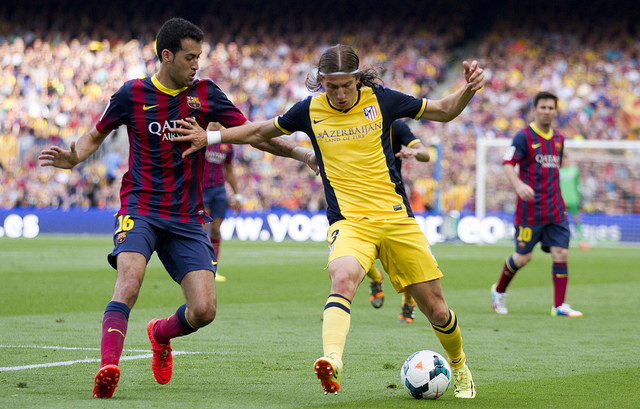 “The Champions League, and to a much lesser extent, the Europa League, go some way towards the Europeanization of the game by creating a form of European-wide super-league,” says Wyn. “However, most clubs play in domestic competitions and give priority to them; they make up the bulk of matches that they play. It could, though, be possible in the future for a team to join a league across a national border, leagues could be merged – as Charlton’s owner Roland Duchâtelet, has advocated, albeit without success, for the Belgian and Dutch leagues.”
“The Champions League, and to a much lesser extent, the Europa League, go some way towards the Europeanization of the game by creating a form of European-wide super-league,” says Wyn. “However, most clubs play in domestic competitions and give priority to them; they make up the bulk of matches that they play. It could, though, be possible in the future for a team to join a league across a national border, leagues could be merged – as Charlton’s owner Roland Duchâtelet, has advocated, albeit without success, for the Belgian and Dutch leagues.”
There is a view that the European Commission had (and possibly still has) an agenda in relation to football. Several views and examples of this are explored in The Transformation of European Football: Towards the Europeanisation of the National Game, edited by Wyn Grant alongside Arne Niemann and Borja Garcia. The view held by some is that football is not just a game nor just a business but an Europeanising force that could reach EU citizens in a way that other interventions could not.
“However, in our view,” explains Wyn, “UEFA was even more important in this respect, particularly after Ms Reding changed portfolios. This is why we asked Jonathan Hill, a senior UEFA official at the time, to contribute a chapter to the book, in a personal capacity. He argued that a European public space might be emerging, a space to debate shared interests (in this case football); an essential step in creating a European demos.
“Hill, who was the Head of EU Office at UEFA, acknowledged that the presence of strong, local identities would continue to exist in football but he also thought that football placed people in an enlarging European framework.”
Financial fair play regulations are not the only solution being offered to the problems football is facing. Greg Dyke, and a commission, has set out to tackle some of the problems of the English game.
Among the proposals is the establishment of a B-team league for top clubs. It has been viewed as a controversial suggestion in the press; Henry Winter, Football Correspondent for the Daily Telegraph, referred to the plans as a “wrecking ball to the pyramid of English football.”
Under the proposal, there would be a new League 3 from 2016/17 with ten B-teams from the top Premier League clubs and ten teams coming from the Conference – the top non-League competition. There would be promotion but B-teams could not be promoted beyond League 1.
“The commission also proposes strategic lone partnerships between clubs which is a euphemistic way of referring to the idea of nursery clubs,” says Wyn. “And there’s a proposal to reduce the number of non-home grown players in the Premier League.
“The response of the Premier League to the B-league plan has been tactful in saying it is not timely, but in effect, the Premier League clubs are seeking to kick this into the long grass. However, Dyke hopes that the Football League might be attracted by a sweetener of £20m, made up of a payment of £2m from each club fielding a B-team.”
The Football Conference has been more robust in its criticism and the Conference Chairman Brian Lee has said it will resist the B-league plan. Lee has voiced his concern that the Conference was not consulted when the plan was drawn up.
Greg Dyke continues to promote the idea but much depends on the Premier League. “The Premier League holds the real power rather than the FA,” says Wyn. “They will probably settle for a beefed up under-23s league.
“The underlying problem is the stock-piling of talent. Top clubs sign up too many promising young players who then have limited development opportunities. In practice, very few of them will make the grade at the top level but one motive for having them on the books is, of course, to stop other clubs getting hold of them and turning them into a star player.
“One must be very careful about giving the impression that this is all doom and gloom in football – that we’re surrounded by problems that cannot be overcome. Fans enjoy the spectacle of the Premier League and the top players it attracts. Grass roots football has many challenges but many community-based clubs, like my own at Leamington, are flourishing through volunteer effort.”
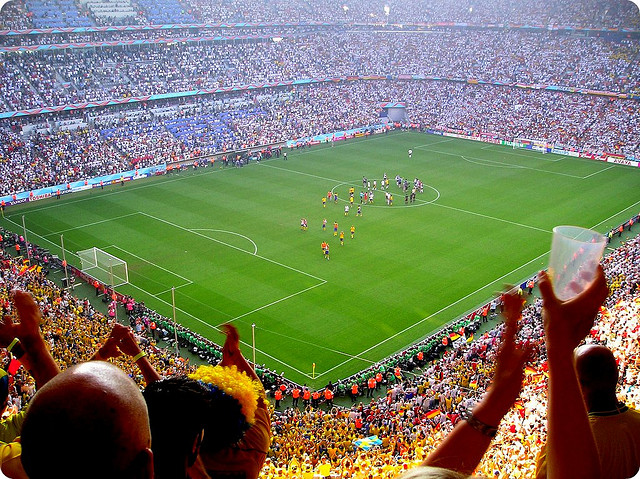 Strong, intelligent and small ‘c’ conservative leadership might be what football needs at this moment. Wyn’s colleague, Dr Christian Stadler from the Warwick Business School, has been researching how organisations can achieve a sustainable competitive advantage. In a recent study he compared companies that were at least 100 years old – some that were doing well on the stock exchange and some less so. What sets the two groups apart?
Strong, intelligent and small ‘c’ conservative leadership might be what football needs at this moment. Wyn’s colleague, Dr Christian Stadler from the Warwick Business School, has been researching how organisations can achieve a sustainable competitive advantage. In a recent study he compared companies that were at least 100 years old – some that were doing well on the stock exchange and some less so. What sets the two groups apart?
“The key finding that emerged was that the top companies are ‘intelligently conservative’,” explained Christian. “They value their past, they value their history but they do not miss the fact that the world is changing and they need to adapt to that as well.”
The successful companies include the likes of Shell, Siemens, GlaxoSmithKline (GSK) and Legal and General. With football being a multi-million pound industry now, Christian believes there are lessons that clubs – and their managing bodies – can learn from more established board rooms.
“Football has two sides; what is happening on the pitch and what’s happening in the background; the organisational side,” says Christian. “You have big organisations like FIFA or UEFA who are in charge of organising all of it so we, as fans, can watch the beautiful game. Clearly these organisations can benefit from some of the insights that large successful companies provide for us.”
Whilst business can influence football, there remains a place for football to influence business; or at least offer the occasional metaphor for how those in the board room should behave.
“There are fantastic little footballing metaphors for things that are going on in the board rooms of this world,” says Christian. “When you look at a successful coach, they typically change players, they give instructions, they provide training, they organise but they don’t actually get involved in the game itself; it would be chaos if they ran onto the pitch and tried to score a goal.
“With the companies we looked at, the most successful leaders were similar in many ways; they’re not the ones trying to ‘score the goals’ – they’re the ones who listen to their people, who work with them, set the conditions under which they can develop and then let them get on with their work.
“If they become too visionary and say ‘this is exactly what we need to do’ – there’s a big danger that they’ll run in the wrong direction.”
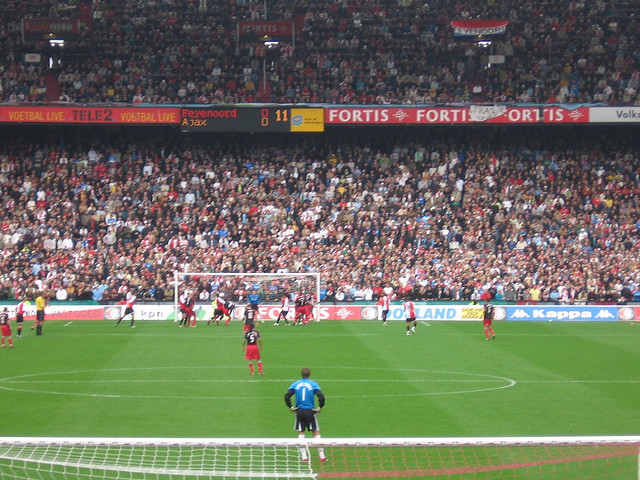 What would an intelligent conservative approach look like for UEFA or FIFA? One of the organisations Christian looked at was Shell (Royal Dutch Shell plc). Shell was generally a successful organisation but in the 1990s when the board looked at its key performance indicators they were consistently lagging behind Exxon on one KPI (the return on average capital employed).
What would an intelligent conservative approach look like for UEFA or FIFA? One of the organisations Christian looked at was Shell (Royal Dutch Shell plc). Shell was generally a successful organisation but in the 1990s when the board looked at its key performance indicators they were consistently lagging behind Exxon on one KPI (the return on average capital employed).
“They knew something had to be done,” says Christian. “But, with all the traditions the company had, a decentralised structure being one, the leadership at the time knew it couldn’t change things overnight.”
Instead of introducing dramatic changes straight away the board introduced a soft change programme; people went on training to gain an understanding of what could be done differently. Only in 1999 when the price for oil dropped below $20 a barrel, a low not seen since the Yom Kippur War oil embargo of 1973, did the board move to introduce radical, structural changes.
“There was a crisis situation which enabled them to do something more radical,” explains Christian. “For an organisation like FIFA, it means that if there is a need for change, it needs to consider where it is starting from; what sort of history does it have? What sort of organisation is it currently? You cannot completely reinvent an organisation; some of us might like to but it’s unrealistic. The much better and realistic way is to recognise it takes time – five or maybe ten years before an organisation of that kind can change – and that it requires a taste for timing.”
The crisis around Qatar and the alleged bribery of FIFA officials might not have been the right moment to seek change, with it coming so close to the World Cup in Brazil.
“We might need an even bigger crisis to make radical change,” says Christian. “In some ways it’s sad but it’s also realistic. The leadership of FIFA is probably glad that it came out this year as the World Cup will have drowned out much of the noise. However, they should also be sad as it doesn’t provide them with the chance to have fundamental change which, in the long run, would be good for FIFA.
“We can dream about what governance would look like in various forms but the reality is we have FIFA. FIFA’s not going away and we have to live with it.”
 Professor Wyn Grant is a graduate of the universities of Leicester, Strathclyde and Exeter. He joined Politics and International Studies at University of Warwick (PAIS) in 1971 and was chair of department from 1990 to 1997. He has worked closely on research projects with colleagues in the Department of Life Sciences and teaches there and at the Warwick Crop Centre, Wellesbourne. In 2010 he was presented with the Diamond Jubilee Lifetime Achievement award of the Political Studies Association of the UK at their Awards Ceremony. He was elected an Academician of the Academy of Social Sciences in 2011.
Professor Wyn Grant is a graduate of the universities of Leicester, Strathclyde and Exeter. He joined Politics and International Studies at University of Warwick (PAIS) in 1971 and was chair of department from 1990 to 1997. He has worked closely on research projects with colleagues in the Department of Life Sciences and teaches there and at the Warwick Crop Centre, Wellesbourne. In 2010 he was presented with the Diamond Jubilee Lifetime Achievement award of the Political Studies Association of the UK at their Awards Ceremony. He was elected an Academician of the Academy of Social Sciences in 2011.
Dr Christian Stadler is an Associate Professor in Strategic Management. Prior to joining Warwick Business School he was at University of Bath School of Management and Innsbruck University. He is also a member of the Editorial Board of the Strategic Management Journal. Christian's research examines how organisations can achieve sustainable competitive advantage.
